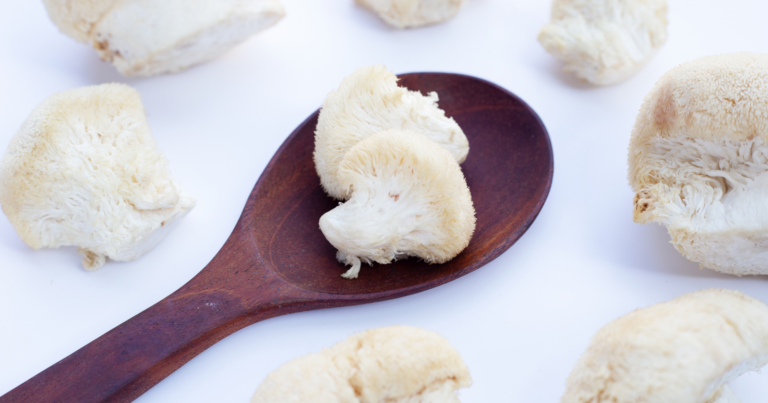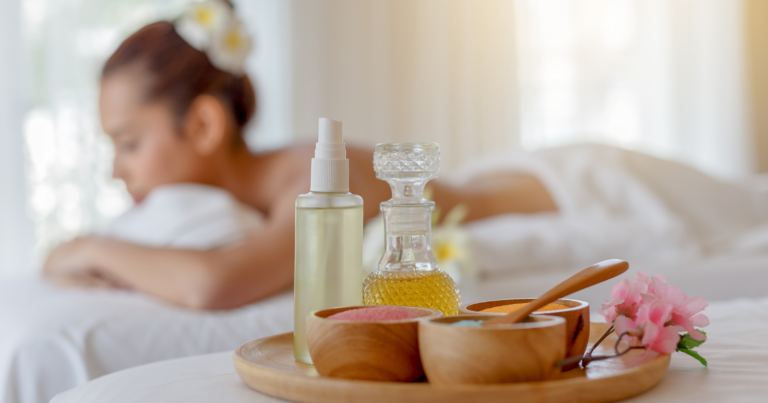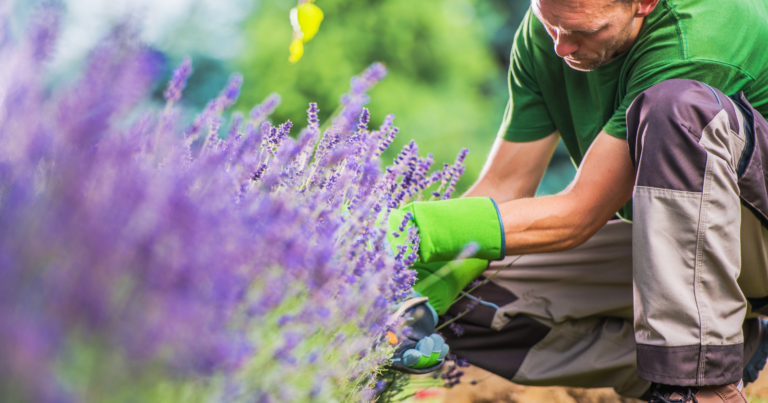Holistic wellness is an approach to health that considers the entire person — body, mind, spirit, and emotions — in the quest for optimal health and well-being.
It is important because it helps individuals achieve balance in all areas of life.
But if you’re just getting started, you may find it a bit overwhelming to understand the essence of self-care practices that lead to holistic wellness.
This guide will provide beginners with a comprehensive overview of holistic wellness and 9 specific self-care practices to start their journey toward a healthier, more balanced life.
What is holistic wellness?
Holistic wellness is a comprehensive approach to life that goes beyond simply treating physical ailments.
It’s a nurturing state of complete health where your physical, mental, emotional, and spiritual aspects are in harmony.
This approach recognizes that each of these elements is interconnected, influencing overall health and happiness.
Rather than focusing on illness or specific parts of the body, holistic health emphasizes the whole person and how they interact with their environment.
It encourages us to look inward and outward, making conscious choices that contribute to our well-being.
By adopting a holistic perspective, individuals are empowered to take control of their health and lead lives that are not just free of illness but are vibrant, fulfilling, and balanced.
9 self-care practices for holistic wellness
1) Prioritize your sleep
Let’s talk about a fundamental part of our lives that often gets overlooked – sleep.
In the rush of our daily lives, it’s easy to sideline sleep.
Trust me, I’ve been there.
But it’s time we start viewing sleep as a non-negotiable self-care practice.
Sleep isn’t just about recharging your body. It’s a sacred time that allows your body and mind to heal, rejuvenate, and prepare for the challenges of the next day.
But, prioritizing sleep isn’t just about getting those 8 hours in. It’s about quality too. It’s about creating an environment conducive to a good night’s rest – think dark, quiet, and cool.
Admittedly, it might be challenging to change your sleeping habits overnight (pun intended). But making small changes can make a big difference.
2) Practice mindfulness
Now, you’ve probably heard about mindfulness. It’s a term that’s been making the rounds in wellness circles, isn’t it?
Simply put, mindfulness is the practice of focusing your attention on the present moment. It’s about acknowledging and accepting your feelings, thoughts, and bodily sensations without judgment.
But how does this contribute to self-care and holistic wellness?
Well, incorporating mindfulness into your daily routine can significantly improve your mental and emotional health. It helps to reduce stress, improve focus, and increase emotional resilience.
So, here are my quick tips for anyone who wants to become more mindful:
- Practice meditation: Start by dedicating a few minutes each day to meditation. This can help you achieve a state of mindfulness and peace.
- Breathing exercises: Simple breathing exercises can also bring you into a mindful state. Try taking slow, deep breaths, focusing on each inhale and exhale.
- Stay present: Whether you’re eating, walking, or just sitting, try to stay present in the moment. Avoid distractions and try to focus on your current activity.
The beauty of mindfulness is that it can be practiced anytime, anywhere. You could be mindful while eating your breakfast, taking a walk, or even doing household chores.
3) Unplug regularly
While mindfulness encourages us to be present, there’s an aspect of modern life that often hinders this practice — our digital devices.
We live in a digitally-dominated world where we’re constantly connected.
Emails, social media notifications, and news updates – it can be overwhelming, causing stress and anxiety.
That’s why it’s essential to unplug regularly.
This might seem counter-intuitive in a world that values constant connectivity, but you know what?
Unplugging doesn’t mean completely isolating yourself from the digital world. What I mean here is just setting boundaries and taking regular digital detoxes.
Yes, it could be as simple as turning off your notifications for a few hours each day or dedicating an entire day each week to be device-free.
By doing so, you free up mental space to focus on other aspects of your life and give yourself a chance to connect in a deeper, more meaningful way with the world around you.

4) Develop a gratitude practice
Have you ever stopped to truly appreciate the positive aspects of your life?
Gratitude is more than a feel-good buzzword. It’s a powerful practice that can drastically improve our mental and emotional well-being.
The concept behind it is simple: regularly acknowledging and appreciating the good things in your life. It can be as monumental as celebrating a significant achievement or as mundane as being thankful for your morning coffee.
It’s easy to focus on what’s going wrong in our lives, especially when we’re faced with challenges. But shifting our focus to what’s going right can give us a fresh perspective and a much-needed positivity boost.
The best part? You can easily incorporate gratitude into your daily routine. You could start a gratitude journal, where you jot down three things you’re grateful for every day. Or take a few moments each morning or evening to reflect on what you appreciate in your life.
Remember, self-care isn’t just about caring for your physical health. It’s also about nurturing a positive mindset, and practicing gratitude is a powerful way to do just that.
5) Nourish your body with wholesome food
We’ve all heard the saying “you are what you eat.” But it’s not just about maintaining a healthy weight or avoiding illnesses.
In fact, nutrition plays a significant role in holistic wellness.
Consuming a balanced diet not only supports physical health but can also enhance mental and emotional well-being.
Specifically, eating wholesome food is a key aspect of self-care.
Here’s the thing: our bodies need a variety of nutrients to function optimally. And we get these nutrients from the food we eat.
Now, I’m not suggesting you follow a strict diet or eliminate certain food groups.
Instead, I invite you to:
- Listen to your body and its needs
- Eat a variety of foods
- Enjoy the process of preparing and eating meals
Now, you might be wondering what foods provide a broad spectrum of nutrients. This includes:
- Whole foods: Incorporate whole grains, fruits, vegetables, and lean proteins into your diet. These foods are packed with essential nutrients that support overall health.
- Hydration: Drink plenty of water throughout the day. Staying hydrated supports digestion, skin health, and overall energy levels.
- Limit processed foods: Try to limit your intake of processed foods, which often contain high levels of sodium, unhealthy fats, and added sugars.
In essence, proper nutrition is an essential aspect of holistic wellness that can significantly impact your overall health and well-being.
6) Embrace movement
Who among us hasn’t made a New Year’s resolution to hit the gym, only to stop going by February?
At least, I have.
Here’s what I’ve learned: movement, just like self-care, isn’t one-size-fits-all.
You don’t have to spend hours at the gym to reap the benefits of physical activity. The trick is to find a form of movement that you enjoy and can sustain in the long run.
For some, it might be dancing. For others, it could be a leisurely walk in the park. And for some, yes, it might be hitting the weights at the gym.
The point here is not to treat physical activity as a chore or just another thing on our checklist. Instead, we need to embrace movement as a celebration of what our bodies can do.
To incorporate physical activity into your holistic wellness routine, consider the following:
- Consistency: Aim for at least 30 minutes of moderate physical activity most days of the week. Consistency is key when it comes to reaping the benefits of exercise.
- Variety: Incorporate a mix of aerobic exercises like walking or cycling, strength training exercises, and flexibility workouts like yoga or stretching.
- Enjoyment: Choose activities you enjoy to help ensure you stay motivated and committed to your routine.
7) Take time for hobbies
In the hustle and bustle of our daily lives, it’s easy to forget the things we truly enjoy doing. The things that make our hearts sing and our souls feel alive.
I remember a time when I used to paint. It was my escape, my personal haven where I could express myself freely.
But as life got busier, I found myself painting less and less until I stopped altogether.
One day, I picked up my paintbrush again. The moment I started painting, I felt a sense of calm wash over me. It was a feeling I hadn’t experienced in a long time.
It was then I realized the importance of making time for hobbies in our self-care journey.
Whether it’s painting, reading, gardening, or playing an instrument – hobbies offer an outlet for self-expression. They bring joy, reduce stress, and contribute to our overall mental wellbeing.
8) Foster positive relationships
As we journey towards holistic wellness, let’s not forget the vital role of positive relationships.
I’ve found that surrounding myself with supportive, uplifting individuals significantly enhances my wellness journey.
Here’s the thing:
Wellness is not just an individual pursuit. It’s deeply interconnected with our relationships and social interactions.
Whether it’s the support from a close friend, the love from a family member, or the guidance from a mentor – these relationships impact our mental and emotional wellbeing.
So, take some time to nurture these relationships. Engage in meaningful conversations, express your gratitude, and offer support when needed.
9) Practice self-compassion
Finally, and perhaps most importantly, practicing self-compassion is crucial for holistic wellness.
We often measure our worth by our achievements and productivity, and when we fall short of our expectations, we tend to be hard on ourselves.
But guess what?
It’s okay to make mistakes. It’s okay to have off days. And it’s definitely okay not to have everything figured out.
At the heart of self-care is understanding that we are human, and therefore, imperfect.
Practicing self-compassion means treating ourselves with the same kindness and understanding that we would offer a friend in a similar situation.
Just be kind to yourself, especially during tough times. That way, you can cultivate resilience, boost your mental health, and foster a healthier relationship with yourself.
How does holistic wellness shape your life?
Holistic wellness and self-care practices offer a path toward comprehensive well-being. These practices foster a balanced lifestyle, integrating physical health, mental clarity, emotional stability, and spiritual growth.
- Physical health: Regular exercise, a balanced diet, and sufficient rest.
- Mental clarity: Mindfulness practices, such as meditation and journaling.
- Emotional stability: Nurturing positive relationships and practicing self-love.
- Spiritual growth: Connecting with your inner self and exploring your purpose in life.
By incorporating these elements into your daily routine, you can enhance your quality of life and overall well-being.
The path is yours to explore. There’s no one-size-fits-all approach to holistic wellness. Each step you take is a testament to your commitment to personal growth and self-discovery.











